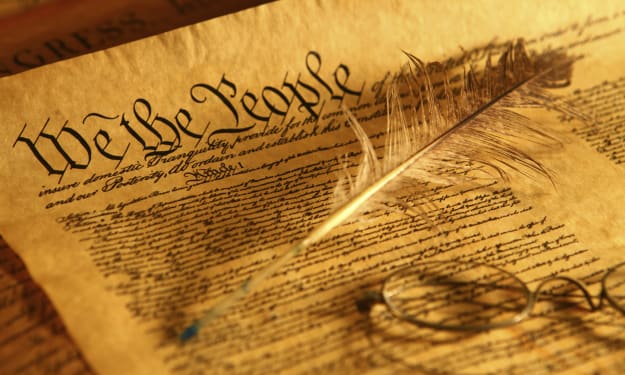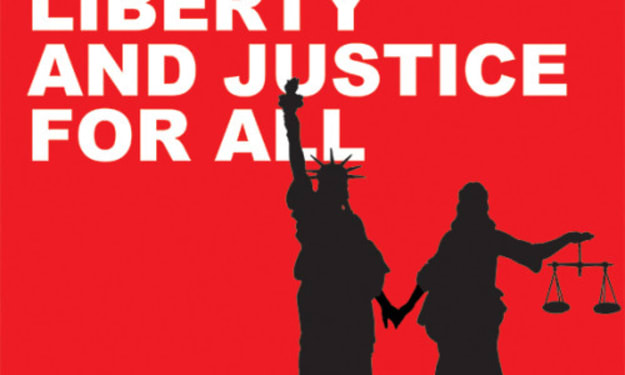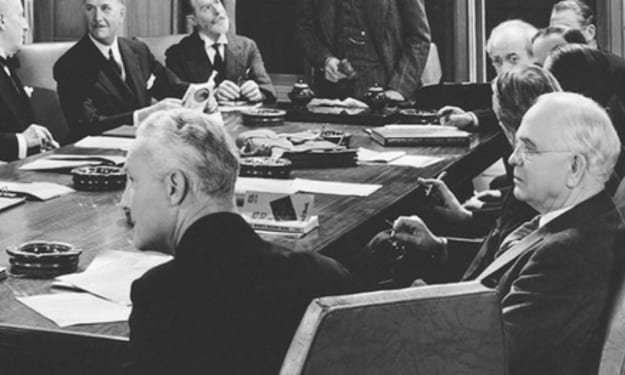history
Past politicians, legislation and political movements have changed the course of history in ways both big and small. Welcome to our blast to the past.


Our Parents Were Better Than Us at Protesting
The atmosphere was tense. It was May 6, 1970, as the fresh spring dew from the Mitchell Hall lawn began to soak through the shoes of the roughly 3000 protesters gathered on UWM's campus that day. They barely spoke, they didn't need to, the time for their voices to be heard would come later; for the time being their goal is simple—disrupt administrative activities in Mitchell Hall and draw police attention to create an opportunity for a smaller group of about 300 students to occupy and shut down the library and the power plant.


Not So Right
The United States of America - the land of opportunity and equal rights for all. Or is it? Here are some things you should know about your rights as a U.S. citizen.
Nicholas Kaje ArnoldPublished 6 years ago in The Swamp

Political Sex Scandals That Nobody Will Forget
They say that power is the ultimate aphrodisiac—so perhaps that's why so many politicians have had sex scandals throughout their careers. Politics can be sexy, and it's almost inevitable that the power they wield will end up having them act out some vices.
Ossiana TepfenhartPublished 6 years ago in The Swamp

9/11
The entire city of New York stopped breathing on 11th September 2001, after a horrifying and an appalling afternoon terrorist attack that shocked the whole world. All that was left afterwards was a permanent scar that served a constant reminder to the whole city of the damage that terrorism can cause.


The Politics of World War 1 and How It Shaped Modern European and World History
World War 1, the often overshadowed war, was in my humble opinion, the most influential event in 20th Century European history, and possibly world history for that matter. Aside from all the wartime advancements, such as tank warfare, amphibious assaults, and aerial terror bombing, the political environment was completely reformed and shows us how a breakdown of these integral positions of leadership can lead to mass destruction and millions murdered in the most brutal of ways. What led up to it was a sheer lack of diplomacy.
Drew WilliamsPublished 6 years ago in The Swamp

Better
Opening In this piece I hope to address the controversial beginnings of privilege and thought superiority that many "Americans" have about minorities that also would consider themselves "Americans." I may offend many people, and I am not trying to tell you that you are wrong, because this is merely my theory about how the world that I know has become this way.
Carol HallPublished 6 years ago in The Swamp

The Good Ole Boys Club: An Antiquated System That No Longer Belongs In America
The Good ole boys club is a club where men like Roy Moore are protected and get away with despicable behavior. This club has been in America for centuries, it was created during an era where only men who look like Roy Moore had sole authority and was the only governing force in our nation. Furthermore, the good ole boys club has a negative connotation to it because men like Roy Moore, who violate women, are always protected and are never punished for the decorum. Roy Moore is the example of a serial predator and is part of the hypocrisy of white right-wingers who claim to “fight for the unborn”, but fail to protect the innocent that are living. In 2017, America is literally fighting over whether or not a child molester should be elected to the U.S. Senate, a position in which Roy Moore will have the ability to create and pass laws governing millions of people. This good ole boys club is responsible for the turmoil our nation is going through and the trauma it has caused to innocent people. The good ole boys club does not belong in our society and Roy Moore does not belong in the U.S. Senate.
Eve's PoliticsPublished 6 years ago in The Swamp

Who Is Ireland’s Barbara Hewson? Age of Consent to 13, Murder, and Bono. 1498 Til Now
Oh Barbara Hewson. Where does one begin with thee? Many people see you as an enigma, probably paid by old men to do their dirty work of lobbying for the reduction of the age of consent. But I’m not sure that you are so easy to define. A little birdy asked me to investigate Barbara Hewson in the way that I investigated Laura Kuenssberg, John Kersey, and Theresa May’s Father, Hubert Brasier. I love to delve deep into the family history of these complicated characters. I love to study the predatory tentacles of the establishment Kraken that haunts the deep dark ocean of our modern British civilisation. I am basically studying the deoxyribonucleic acid as it progresses through time and space, reproducing to continue its journey. How the genetics react at different eras of social uprising, revolution, cultural evolution, and through personal trauma. DNA can tell us a lot about what makes a human tick, and by studying our own DNA’s history, maybe we can discover why we believe what we do?
Johnny VedmorePublished 6 years ago in The Swamp

How Should We Interpret History?
To most Americans, it is unsettling to watch historical statues toppled and the names of our forefathers besmirched. We used to hold these people in reverential awe, such as George Washington, Thomas Jefferson, Benjamin Franklin, and Andrew Jackson. We certainly knew they weren't perfect, but their accomplishments in the birth of our nation greatly overshadowed their flaws. Even the southern soldiers during the Civil War were held in high regard afterwards by both sides for the bloody lesson the country had to learn the hard way. Time eventually healed the nation.


Most Influential Presidents in US History
A very popular debate among historians and Americans alike comes the discussion on who are the best and the worst of US presidents. American presidents have proved that with much power demands courage.
Sherry CampbellPublished 6 years ago in The Swamp

President Rutherford B. Hayes, National Hero Of… Paraguay?!
In Paraguay, a poor landlocked nation in South America, just north of the capital city of Asuncion, is a town called Villa Hayes (or Hayesville). It is the capital of the Department (state) of Presidente Hayes. Though Paraguay has a long and fascinating history, they have never had a president named Hayes. The town, department, professional soccer team, elementary school, and various statues, are all dedicated to US President Rutherford B. Hayes.


American Slavery
TheNarrative of the Life of Frederick Douglass was written by himself during a time in America when slavery was still legal in many parts of the country, particularly the south. This book outlines the hardships that he endured while in the bonds of slavery. Douglass describes his many masters and his struggle to learn how to read as a child. While a slave he witnessed many atrocities. He saw his aunt, brother, and countless others brutally beaten.
Almárëa LaurësilPublished 6 years ago in The Swamp
























